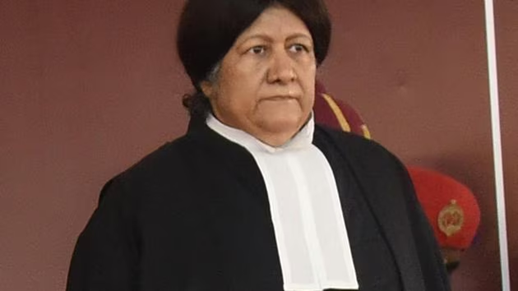Justice Indira Banerjee, born on 24 September 1957, is a highly esteemed former judge of the Supreme Court of India. Notably, she holds the distinction of being the eighth female judge in the history of the Supreme Court. Her illustrious career includes serving as the Chief Justice of the Madras High Court, marking her as the second woman to hold this prestigious position in India.
| Aspect | Details |
| Full Name | Indira Banerjee |
| Date of Birth | 24 September 1957 |
| Place of Birth | Kolkata |
| Education | – Schooling at Loreto House, Kolkata |
| – Higher education at Presidency University, Kolkata, and Department of Law, University of Calcutta | |
| Career | – Enrolled as an advocate on 5 July 1985 |
| – Practiced law before the Calcutta High Court | |
| – Appointed a permanent judge of the Calcutta High Court (5 February 2002) | |
| – Transferred to the Delhi High Court (8 August 2016) | |
| – Chief Justice of the Madras High Court (5 April 2017) | |
| – Elevated as a judge of the Supreme Court of India (7 August 2018) | |
| Contributions | – Notable judgments and decisions during her tenure on various high courts |
| – Active involvement in legal education and legal aid in India | |
| Elevation to Supreme Court | – Elevated as a judge of the Supreme Court of India (7 August 2018) |
Early Life and Education
Indira Banerjee commenced her educational journey at Loreto House in Kolkata. Her pursuit of higher education led her to the Presidency University, Kolkata, and the Department of Law at the University of Calcutta. These formative years laid the groundwork for her stellar legal career.
Legal Career
Enrolling as an advocate on 5 July 1985, Banerjee initiated her legal practice before the Calcutta High Court. Her dedication, legal acumen, and ethical practice garnered her recognition within the legal community.
Judicial Ascendancy
Justice Banerjee’s journey in the judiciary took a significant turn when she became a permanent judge of the Calcutta High Court on 5 February 2002. Her contributions to the legal field were duly acknowledged, leading to her transfer to the Delhi High Court on 8 August 2016.
Assuming the role of Chief Justice of the Madras High Court on 5 April 2017, she became the second woman to hold this esteemed position. Her tenure witnessed commendable leadership and contributions to the administration of justice.
Justice Indira Banerjee, during her illustrious judicial career, has delivered several noteworthy judgments that have shaped legal precedents and addressed constitutional intricacies. This report highlights three significant cases where Justice Banerjee’s legal acumen and commitment to justice were evident.
Rajendra Diwan v Pradeep Kumar Ranibala (2019)
In this case, a five-judge Bench, with Justice Banerjee as the author of the unanimous opinion, declared Section 13(2) of the Chhattisgarh Rent Control Act, 2011 unconstitutional due to legislative incompetence. The judgment emphasized the inefficiency of allowing direct appeals to the Supreme Court, even when both the Rent Controller and Rent Control Tribunal concurred in their decisions.
Dattatraya v State of Maharashtra (2019)
Justice Banerjee authored the unanimous opinion of a three-judge Bench in this case where the appellant’s death sentence was reduced to life imprisonment. The judgment stressed the importance of adequate legal aid for the accused, noting the absence of a social worker’s assistance and the failure to record mitigating circumstances. It highlighted the trial court’s oversight in considering the potential for the accused’s reform.
Sushila Aggarwal v State (NCT of Delhi) (2020)
In this case, a five-judge Bench, with Justice Banerjee contributing a concurring opinion, clarified that there is no time limit for individuals to seek anticipatory bail under Section 438 of the Code of Criminal Procedure, 1973. Justice Banerjee emphasized that the protection of anticipatory bail does not automatically expire when an accused is summoned to court, leaving room for the imposition of appropriate conditions.
Justice Indira Banerjee’s contributions to the legal landscape are evident in these cases, reflecting her commitment to upholding constitutional principles, ensuring fair trials, and clarifying legal ambiguities. Her judgments continue to serve as valuable precedents and contribute to the evolving jurisprudence of the Indian legal system.
Supreme Court of India
Justice Indira Banerjee’s exceptional judicial career culminated in her elevation as a judge of the Supreme Court of India on 7 August 2018. This marked a pinnacle in her career, demonstrating her legal expertise and commitment to justice.
Retirement
Justice Banerjee served with distinction on the Supreme Court until her retirement on 23 September 2022. Her retirement marked the conclusion of a remarkable career characterized by integrity, dedication, and a steadfast commitment to upholding the principles of justice.

